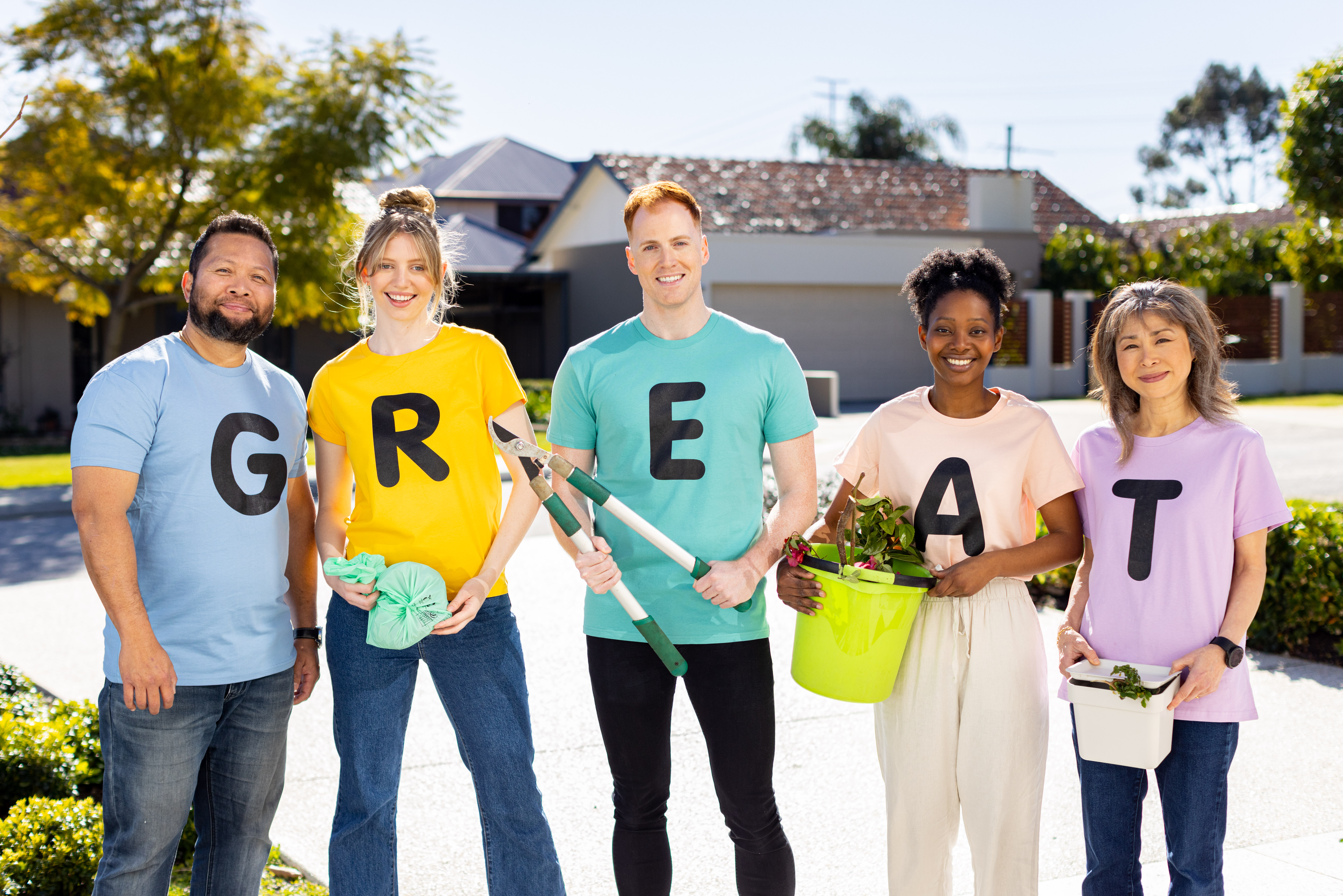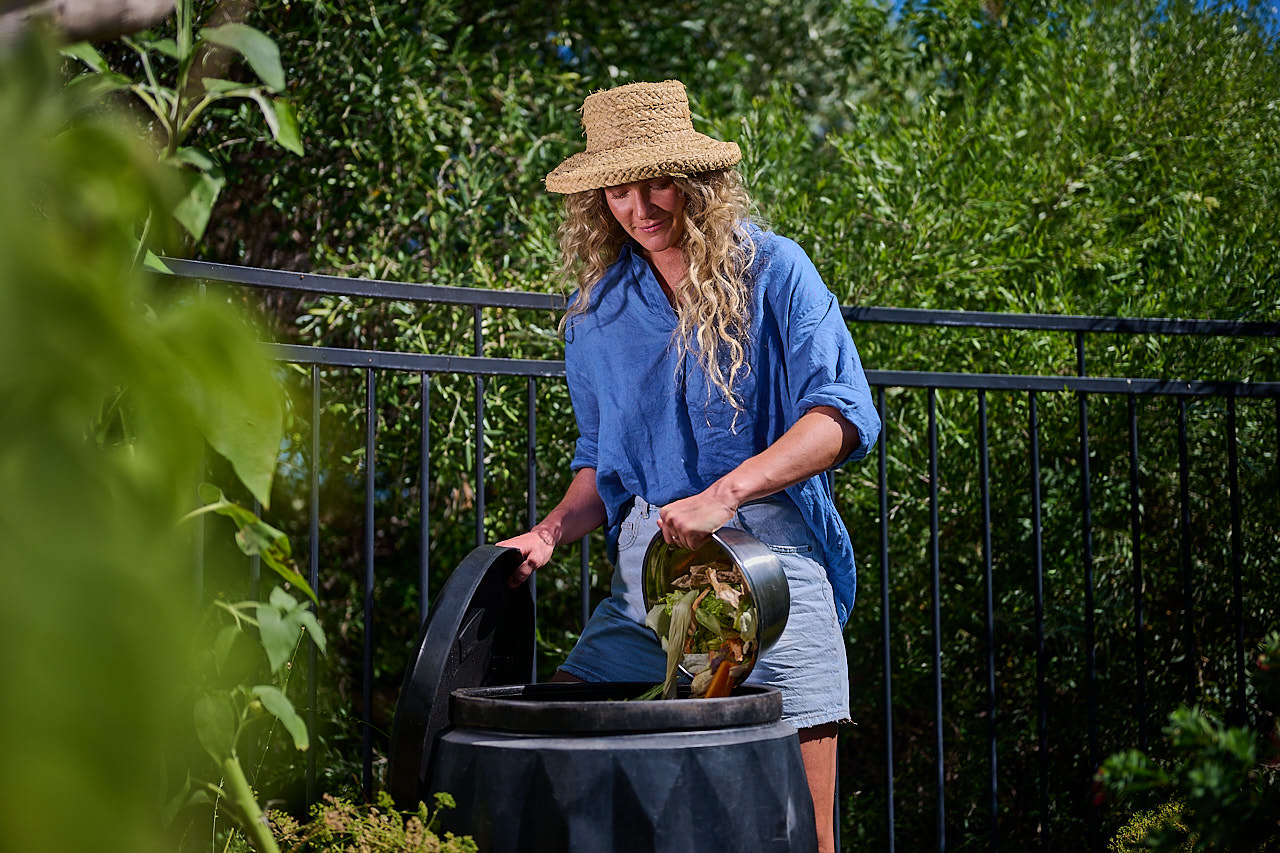Earth-cycling
One of the best ways GREAT Sorts can reduce landfill is to EARTH-CYCLE food scraps and garden waste into their food organics and garden organics (FOGO) bin, or by composting at home.

Why Earth-cycle?
Around 50 per cent of household waste is organic. As most greenhouse gas emissions from landfill come from decomposing organic matter, GREAT Sorts earth-cycle to easily reduce what goes in their general waste bin, tackle climate change and live more sustainably. There’s many ways to earth-cycle – check out the different options below.
The FOGO bin
FOGO is the name most people will use when talking about their Food Organics and Garden Organics bin. This is the green lid bin that accepts food waste along with garden waste, and is emptied weekly. This kerbside collection service makes it easy for households to reduce waste to landfill as the contents of FOGO bins will be turned into soil conditioner or compost. Your FOGO bin can easily handle food scraps including citrus, onion skin, bones, meat and seafood, which are typically unsuitable for home composting, as well as excess garden prunings and lawn trimmings that may not fit in your earth-cycling system at home.
Use FOGO for all of your food scraps and garden trimmings, including:
Click here to find out more about how to FOGO at home and what happens to your FOGO once it’s collected.
The other lime-green bin – GO
Some local governments in Western Australia have introduced a garden organics (GO) bin. This bin is for grass clippings, plant cuttings, leaves, flowers, weeds, small branches and twigs, and is collected fortnightly. The contents of GO bins are turned into mulch, so food waste is a no-go in your GO bin as the contents of this bin aren’t fully composted like FOGO.
Use GO for all your garden trimmings, including:
Don't have a FOGO bin yet?
Even if your local government area hasn’t rolled out FOGO bins yet, there are still ways you can tackle your food waste by earth-cycling at home.
Your choices include traditional composting, worm farming or bokashi.
Composting
Whether you use an above ground bin or opt for a rotating tumbler, home compost systems are a low-maintenance earth-cycling method for those with gardens. Turn your kitchen peelings and garden prunings into a nutrient rich soil.
Use your compost bin for:
Worm farms
Worm farms are great for people with less garden waste to earth-cycle. Your worms will process small kitchen scraps into high-quality castings as well as a nutrient rich ‘worm tea’, perfect for helping your garden and indoor plants grow.
Use your worm farm for:
Bokashi buckets
Ideal for homes without outdoor space, bokashi buckets use the power of fermentation to break down your food waste into a pre-compost product and a nutrient rich ‘bokashi tea’, perfect for your pot plants.
Use Bokashi for:
Find out more in the beginners guide to home composting.
Can't compost at home?

If you don’t have the time or space to compost at home, you can still give your food waste a second chance with Peels – a local collective that connects people with food scraps to those who can compost them. GREAT Sorts can either donate or receive organic waste to be transformed into nutrient-rich soil.
Food becomes compost
Be a GREAT Sort! Compost your food scraps and garden waste at home, or through your lime-green FOGO bin if you have one.